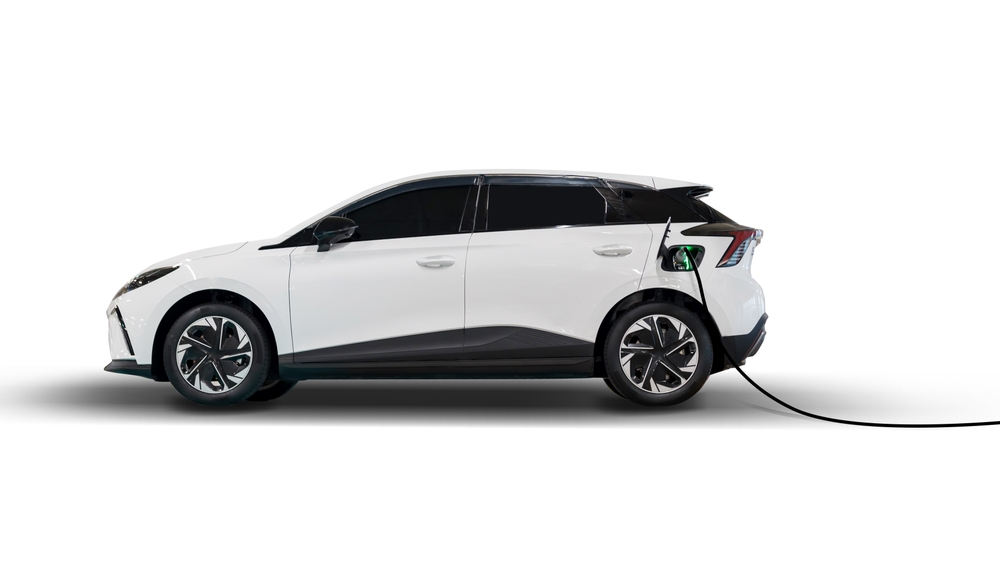When you purchase or lease a vehicle, you expect it to be reliable, safe, and free from persistent mechanical issues. However, not all vehicles meet these expectations. Some continue to experience defects despite multiple repair attempts, leaving owners frustrated and concerned about their safety and finances. Fortunately, California’s Lemon Law is in place to protect consumers from being stuck with defective vehicles.
These laws provide essential protection, offering refunds, replacements, or settlements for vehicles that fail to meet reliability and safety standards. However, changes to California’s Lemon Law regulations are making it more challenging for consumers to file claims. Understanding how long you have to file a Lemon Law claim is crucial if you find yourself dealing with a problematic vehicle. If you’re considering a Lemon Law claim, you may be wondering: How old can a car be to qualify for Lemon Law protection in California?
In this guide, we will explore the details of Lemon Law eligibility, including vehicle age limits, the claims process, and what steps you can take to secure the compensation you deserve. If you’re facing issues with a vehicle that doesn’t meet the promised standards of reliability, knowing your rights under California’s Lemon Law is the first step toward resolving your situation.
What Does It Mean for a Vehicle to Be a ‘Lemon’?

A vehicle is classified as a “lemon” when it has significant defects or recurring issues that affect its safety, usability, or value. These defects must persist despite a reasonable number of repair attempts, making the vehicle unreliable and, in some cases, even dangerous to drive. California’s Lemon Law exists to protect consumers who unknowingly purchase defective vehicles, ensuring they have legal options to seek compensation or a replacement.
To qualify as a lemon, the vehicle’s issues must substantially impair its use, market value, or safety. This means problems like engine failure, transmission issues, braking malfunctions, electrical system defects, or other major mechanical failures could make a vehicle eligible for Lemon Law protection. Additionally, the law does not require a specific number of repair attempts—what qualifies as “reasonable” depends on the severity of the defect and its impact on the vehicle’s functionality.
California’s Lemon Law applies to both new and used vehicles that are still covered by the manufacturer’s warranty. Even if a defect does not immediately render the car inoperable, repeated issues that significantly disrupt the owner’s ability to use or rely on the vehicle can qualify for legal action.
If your car spends more time in the repair shop than on the road, or if you feel unsafe driving it due to unresolved mechanical failures, it may be time to take action under California’s Lemon Law. Understanding what qualifies a vehicle as a lemon is the first step toward ensuring you don’t get stuck with a defective car.
How Old Can a Vehicle Be for Lemon Law Protections in California?
The Song-Beverly Consumer Warranty Act, commonly referred to as California’s Lemon Law, has seen an increase in claims, causing delays in case resolutions. To streamline the process, Assembly Bill 1755 (AB 1755) introduces new rules for filing Lemon Law claims.
Under AB 1755, a consumer qualifies for Lemon Law protection if:
- The vehicle was purchased within six years of the original delivery date.
- The manufacturer’s or dealership warranty expired within the last year.
This means that the age of a vehicle plays a significant role in determining whether a consumer can successfully file a Lemon Law claim. Unlike some states that impose strict mileage or age limits, California provides a broader window of eligibility. However, timing is critical. If a defect arises after the six-year window or long after the expiration of the warranty, consumers may lose their right to pursue legal action under the Lemon Law.
For example, if a vehicle was purchased on January 10, 2020, with a five-year limited warranty set to expire on January 10, 2025, the consumer must file a claim no later than January 10, 2026. Even if the defect is discovered after the warranty expires, the law still provides an additional year to file a claim. However, if the six-year limit has passed, pursuing a claim becomes significantly more difficult.
It’s also important to note that while the six-year limit generally applies, certain factors can impact eligibility. If the defect was reported and documented during the warranty period but remains unresolved, the consumer may still have a strong case even if the vehicle has aged past the general deadline. Additionally, manufacturers often try to challenge claims by arguing that the defect developed after the warranty period ended, making it even more crucial for consumers to keep thorough records of repair attempts and mechanical issues.
Because California’s Lemon Law claims are time-sensitive, consumers should act quickly if they suspect their vehicle qualifies as a lemon. Waiting too long can result in losing the opportunity to seek compensation or a replacement. Consulting experienced legal professionals ensures that deadlines are met and that the strongest possible case is built to maximize recovery.
If you’re unsure about your vehicle’s eligibility for a Lemon Law claim based on its age or warranty status, speaking with knowledgeable Lemon Law attorneys can clarify your rights and options. Understanding the deadlines and legal nuances can make all the difference in securing the compensation you deserve.
What Types of Vehicles Qualify Under Lemon Law?

California’s Lemon Law protections extend to a wide variety of vehicles, ensuring that consumers are not left with defective transportation. While many people associate Lemon Law claims with standard passenger cars, the law actually applies to several other types of vehicles, as long as they are covered by the manufacturer’s warranty at the time the defect is discovered.
Passenger Vehicles
Cars, trucks, and SUVs used for personal, family, or household purposes are covered under the law. Whether you own or lease the vehicle, if it experiences repeated, unresolved defects that affect its use, safety, or value, it may qualify for compensation or replacement under California’s Lemon Law.
Motorcycles and Recreational Vehicles (RVs)
Many consumers don’t realize that motorcycles and recreational vehicles (RVs) also fall under Lemon Law protections. However, coverage may be limited to the vehicle’s chassis and drivetrain components, meaning that living quarters in an RV might not be covered unless they are directly tied to mechanical performance.
Electric Vehicles (EVs) and Hybrids

With the rise of electric and hybrid vehicles, California’s Lemon Law also ensures that these advanced vehicles meet reliability and safety standards. EV battery defects, charging system failures, and software malfunctions can all be covered under the Lemon Law if they significantly impact the vehicle’s performance and are not resolved after a reasonable number of repair attempts.
Commercial Vehicles
Under specific circumstances, small-business owners may also qualify for Lemon Law protection if their defective vehicle is used primarily for business purposes. However, this applies only if the business owns no more than five vehicles registered in California and the vehicle’s weight does not exceed a certain limit.
Boats, Trailers, and Other Specialty Vehicles
Certain boats, trailers, and specialty vehicles may also be covered under California’s Lemon Law, provided they come with a manufacturer’s warranty. This can include jet skis, campers, and other motorized vehicles used for recreational purposes.
If you are experiencing repeated issues with a vehicle that falls under any of these categories, it’s essential to act quickly. Keeping detailed records of repairs and warranty coverage will strengthen your claim and help ensure a favorable resolution under California’s Lemon Law. If you’re unsure whether your vehicle qualifies, seeking legal guidance can provide clarity and direction in pursuing the compensation or replacement you deserve.
How to Start the Lemon Law Claim Process

AB 1755 aims to resolve Lemon Law claims without requiring formal litigation. To begin the process, a consumer must provide written notice to the manufacturer outlining the vehicle’s issues before filing a claim. This notice must include:
- The owner’s name
- Vehicle Identification Number (VIN)
- A detailed repair history
- A description of the defect(s)
- Whether the consumer seeks a buyback or a replacement vehicle
The manufacturer then has 30 days to respond to the claim and comply with the requested resolution. Failure to do so could result in severe legal consequences. If the manufacturer agrees to repurchase or replace the vehicle, they have 60 days to complete the process. Given the complexity of these claims, working with experienced Lemon Law attorneys ensures the best possible outcome.
Frequently Asked Questions
Q: What qualifies a vehicle for Lemon Law protection in California?
A: To qualify, the vehicle must:
- Experience recurring problems
- Have issues that impact its value, safety, or usability
- Have defects that are not due to owner negligence or improper maintenance
- Have unresolved issues despite reasonable repair attempts
- Display defects within the manufacturer’s warranty period
Q: What is the time limit for filing a Lemon Law claim in California?
A: Claims must be filed within 18 months from the vehicle’s original delivery date or before the expiration of the manufacturer’s warranty—whichever comes first. If you are unsure about your eligibility, consulting with a Lemon Law attorney is crucial to ensure compliance with filing deadlines.
Q: Can older vehicles qualify for Lemon Law protection in California?
A: Winning a Lemon Law case for an older vehicle can be challenging. Success requires thorough documentation of repair attempts and proof of persistent defects. To maximize your chances of financial recovery, consulting an attorney with extensive experience in California Lemon Law claims is highly recommended.
Q: What is the average Lemon Law settlement for an older vehicle?
A: The settlement amount varies depending on factors such as the severity of defects, the vehicle’s age, and its purchase value. Generally, settlements for older vehicles tend to be lower than those for new ones. However, working with skilled Lemon Law attorneys can significantly improve your compensation.
Closing
Purchasing or leasing a vehicle should provide peace of mind, not constant frustration. If your car continues to experience mechanical issues despite multiple repair attempts, you may have a valid California Lemon Law claim. These laws are designed to protect consumers from being stuck with defective vehicles, ensuring they receive compensation, a refund, or a replacement when their rights have been violated. However, navigating the Lemon Law process can be complex, and manufacturers may try to deny or delay rightful claims. That’s where we come in.
At Win Lemon Law, we specialize in handling California Lemon Law cases and have a proven track record of securing successful outcomes for our clients. Our dedicated legal team understands the tactics that manufacturers use to minimize payouts, and we fight aggressively to ensure you receive the compensation you deserve. Best of all, there are no upfront attorney fees.
Don’t let a defective vehicle continue to disrupt your life and drain your finances. You have rights, and we’re here to help you enforce them. Contact Win Lemon Law today for a free consultation and take the first step toward resolving your Lemon Law claim. Our team is ready to provide expert guidance and legal representation to get you back on the road with confidence.

